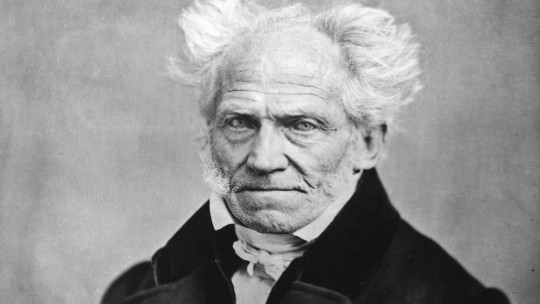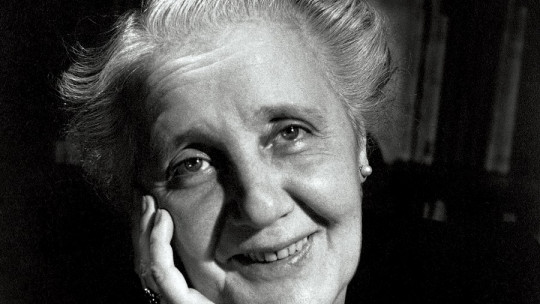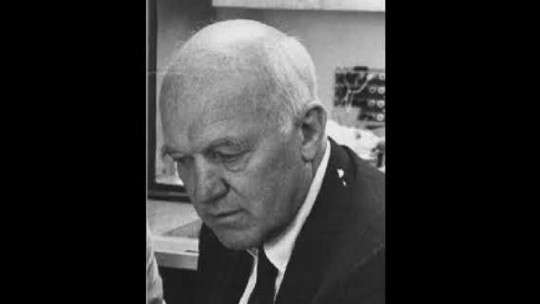
Arthur Jensen’s life is characterized by a marked defense of the findings he made during his investigations. This has been of great interest for the psychology of individual differences and, above all, in the study of intelligence.
However, it should be said that in the same way that he was a prolific scientist, he was also a controversial character, especially when he tried to make the world see his findings on racial differences in the cognitive area. Let’s see what controversy his work generated through this Arthur Jensen biography
Brief biography of Arthur Jensen
Arthur Robert Jensen was born on August 24, 1923, in San Diego, California, United States. He studied at the University of California, Berkeley, and also at San Diego State College and Columbia University.
He wrote his doctoral thesis with Percival Symonds on the Thematic Apperception Test, a projective test which is based on the idea that the unconscious is captured and projected on sheets, revealing aspects of the personality, needs and vital desires that one wishes to fulfill. as well as problem solving skills. Between 1956 and 1958 he carried out postdoctoral research at the University of London, in its institute of psychiatry together with Hans Eysenck.
Upon returning to the United States, He became a professor and researcher at the University of California, where he focused on individual differences and learning Within his studies on how children learn, he focused especially on the differences in the degree of difficulty in learning between different ethnic groups, especially if the ethnic group under study has cultural characteristics that put them at some type of disadvantage.
During his years of training and research he was influenced by Charles Spearman and Hans Eysenck. At your work touched on several fields of psychology, especially educational psychology, behavioral genetics, intelligence and cognition
Apart from his professional career, little is known about Arthur Jensen’s intimate life. He was married to his wife Barbara and always had a great interest in music. In his life he wanted to be an orchestra conductor and, at the age of fourteen, he participated in a national competition in the city of San Francisco directing a band, winning it.
Arthur Jensen passed away on October 22, 2012 in Kelseyville, California, at the age of 89.
Study of intelligence and controversies about IQ
Interest in differences in learning ability led Jensen to administer IQ questionnaires in schools throughout the United States. His results led him to hypothesize the existence of two different types of learning abilities
As time went by, Jensen recognized that His level II proposal was similar to Charles Spearman’s idea of the g factor
According to Jensen, general cognitive ability is essentially an inherited trait, determined primarily by genetic factors rather than environmental influences. He also originally understood that the ability to memorize was a trait that was distributed similarly across races, while the ability to synthesize, or conceptual learning, was something that seemed to be more developed in white people than in non-white people. . It would be this idea that would mark the path to controversy.
But the real controversy would come in February 1969, when he published his work in the Harvard Educational Review, titled How Much Can We Boost IQ and Scholastic Achievement?. In it concluded that programs aimed at increasing IQ in the African-American population had failed and that such an objective was presumably impossible, given that, according to Jensen, 80% of the IQ variance in the population studied was due more to genetic factors than to environmental influences.
Basically, from this work it could be concluded that black citizens of the United States would never have the same IQ as their white fellow citizens. In a society in which the rights of African-Americans were being achieved through struggle and which, since the time of Martin Luther King, was something that represented great tension at a social level, these types of statements were putting the finger on a sore spot.
The work became one of the most cited in the history of research in psychology and the study of intelligence, although it must be said that most of the citations had the objective of refuting what Jensen was maintaining.
As a result of the controversy, Jensen’s own life was affected. Crowds protested calling for Arthur Jensen to be fired It was even the case that the protesters even punctured the tires of Jensen’s car and threatened his family. The police considered that such threats were real and it was necessary for Jensen and loved ones to leave their home for a time.
It should be said that it is not that Jensen was racist. He simply stated what he had found in his investigations and that, if given the opportunity, he would have reinvestigated to see if he could refute himself.
He was aware of the traditional educational differences between whites and blacks in the United States, an environmental factor whose weight was not negligible. What Jensen wanted to indicate with his study was that, although educational programs could mean an improvement in the standard of living and African-American culture, she observed the possibility that there were differences associated with race.
In fact, and according to Thomas Sowell, who was critical of many of Jensen’s theses but still wanted to defend him, he indicated that Jensen, in 1969, when he was studying African-American children by administering IQ questionnaires, obtained scores that seemed very low to him. Watching, he prepared to repeat the test, once he got the children used to his presence and were calmer. He was willing to replicate any experiment as many times as necessary.
You have to understand that, From a biological perspective, the g factor was seen as something that was based on multiple biological variables and that, based on the apparent differences found between whites and blacks in various cognitive tests, it was understood that race, as a biological factor, could be related to intellectual performance.
It should be noted that races should not be seen as discrete and defined categories (in reality, the concept of race in humans is something very strongly criticizable), but rather as sets of human characteristics that have been shown more in certain populations due to processes of natural selection and that are the result of having certain genes that have survived to the next generation.
Recognition at an academic level
Despite his controversy with the differences in IQ between white and black people, Arthur Jensen received the Kistler Prize in 2003 for his original contributions, understanding the connections between the human genome and the functioning of society. His vision of how genetics influences the functioning of society, related to behavioral genetics has been considered one of the great discoveries of the 20th century in terms of individual differences and their implication at a social level.
In 2006, the American Society for Intelligence Research rewarded and recognized Jensen with an award for his professional and life career, not without controversy, for the psychology of individual differences.
Plays
Below we will see four books by Arthur Jensen that, although they have not been translated into Spanish, turn out to be a good example of this psychologist’s vision of individual differences with respect to the construct of intelligence, in addition to showing concepts in some of them. related to psychometrics and obtaining data through questionnaires.
1. Bias in Mental Testing (1980)
Bias in Mental Testingin Spanish “Bias in research with mental tests”, is a book in whichexamines bias when applying questionnaires that measure IQ although they are supposedly standardized.
This is a fairly exhaustive book, about 800 pages in which Jensen explains in detail the possible evidence of bias when administering intelligence questionnaires in a large number of North American populations.
The message that can be extracted from the book is that the tests that were being administered did not show any type of bias if they were administered to people who had English as their native or fluent language.
However, this indicates that yes It is necessary to linguistically adapt these questionnaires to groups whose native language is other than English, even if they were raised in the United States. This will avoid all types of cultural bias.
2. Straight Talk about Mental Tests (1981)
The title of this book could be translated as “Direct Conversation About Mental Testing.” Is about a book that talks about psychometrics but adapted to a more general audience without necessarily being statisticians or research psychologists.
3. The g Factor: The Science of Mental Ability (1998)
In this book Arthur Jensen exposes the concept of the general intelligence factor It also exposes the historical trajectory of the concept and the different models that have approached it and tried to conceptualize it.
It also defends the heritability of intelligence, in addition to exposing its biological correlates and its predictability.
4. Clocking the Mind: Mental Chronometry and Individual Differences (2006)
In this book exposes how the brain processes information and different ways these processes can be measured
For Jensen, the speed of thought seemed to be a more important phenomenon than the concept of IQ itself.
While one indicates how quickly one is capable of solving problems of any kind, the other conceptualized it more as a kind of score that allowed you to consider yourself above or below in a ranking.








